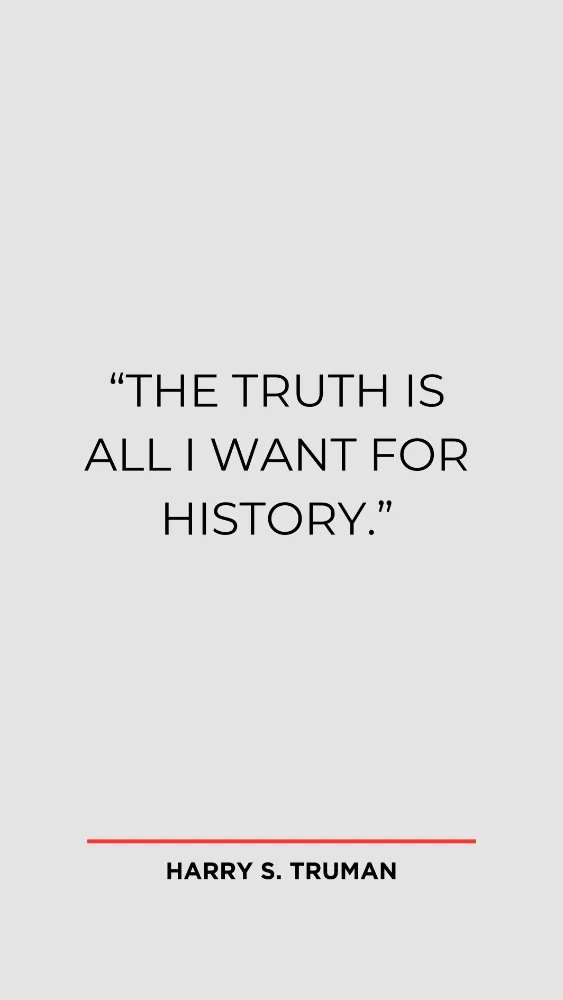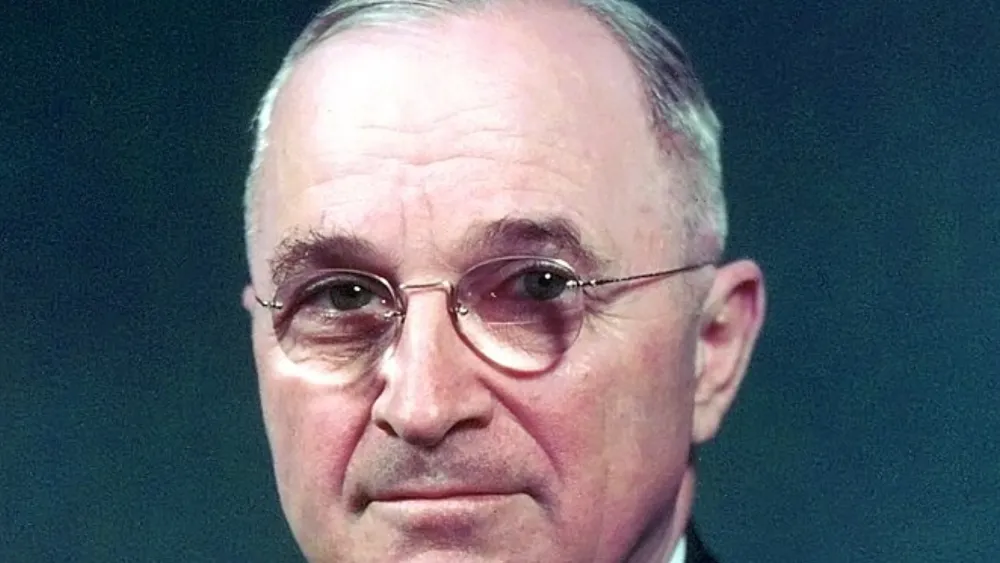The career of Harry S Truman serves as a shining example of how an average individual may achieve incredible heights by working hard, being determined, and having a strong sense of responsibility.
His administration lasted from 1945 to 1953 and was a turning point in American history marked by the Cold War’s beginning, postwar reconstruction, and significant domestic changes.
Truman demonstrated his unwavering commitment to achieving lasting peace through strong leadership during World War II. He particularly finds it difficult to use atomic bombs. As a statesman, he successfully navigated the challenging post-war geopolitical environment. Therefore, it paved the way for the United States to assume its position as a superpower.
Beyond his accomplishments abroad, Truman’s domestic policies had a lasting impact on the country. His support for the United Nations’ founding and the Marshall Plan’s implementation showed how strongly he believed in the capabilities of diplomacy and international collaboration to avert future crises and advance economic stability.
From Humble Origins to Political Aspirations
Financial hardship and a lack of educational opportunities marked Harry S Truman’s early years. On May 8, 1884, Harry was born in Lamar, Missouri. Early Truman had to perform many jobs due to his family’s poor circumstances, which helped him develop a strong work ethic and a feeling of responsibility at an early age.
Truman’s upbringing in a small town was very different from that of the political elite. His humble beginnings and the ideals instilled in him during this time shaped his leadership style throughout his political career.
The Road to the U.S. Senate
Truman’s ascent into politics was a slow but resolute process. Early in the 1920s, he served as a judge in Jackson County, Missouri, which marked his entry into the public sector.
Truman had a reputation for being an honest, fair, and direct judge during his time in office. These characteristics connected with his supporters and set the stage for his eventual political success.
When Truman won a seat in the U.S. Senate in 1934, it was a critical turning point in his political career. Respect among his peers and people alike was rapidly gained due to his firm position on several topics and his reputation as a diligent lawmaker.
World War II and the Presidency
After President Franklin D. Roosevelt passed away unexpectedly in April 1945, Harry S. Truman was elected the 33rd President of the United States.
Truman, a man who had no direct role in the war’s strategic planning, was suddenly in charge of making life-and-death decisions. Soon, this changed the course of history at a time when the world was struggling with the enormous problems of World War II.
The election of Truman to the President signaled a turning point in both his personal and national history. He inherited a globe in disarray, with the Pacific War still raging while the war in Europe drew close.
Post-War Reforms of Harry S Truman
Truman focused on reestablishing and altering the global order after World War II. He was essential in creating the United Nations, a world body dedicated to averting future wars via diplomacy and collaboration. Truman’s dedication to international cooperation significantly changed the isolationist policies of the past.
When the Truman Doctrine was established in 1947, it offered military and financial assistance to nations under communist danger, notably Greece and Turkey. During the Cold War, this signaled the start of the United States’ containment strategy, under which Truman sought to stop the rise of communism on a worldwide scale.
The Marshall Plan was a huge economic aid program created in 1948 by Truman to aid in the reconstruction of Western Europe. Following the destruction of World War II. This helped the recovery of war-torn nations and strengthened American power and allies in the area.
Integration and Civil Rights
Truman’s dedication to racial equality and civil rights is among his most enduring legacies. In 1948, he issued Executive Order 9981, desegregating the United States armed services and starting the end of racial discrimination in the armed forces. This was a crucial step in eventually ending segregation in the U.S..
In its report, “To Secure These Rights,” the committee recommended ending segregation, giving African Americans the right to vote, and other significant civil rights changes. Given the political atmosphere of the moment, Truman’s support for civil rights was brave. Moreover, it paved the way for the movement’s future advancement.
The Legacy and Later Years of Harry Truman
Harry S. Truman left office as president in 1953 and returned to his home state of Missouri and a private life. His post-White House years were everything from dull since he remained a significant player in American politics and diplomacy.
One of Truman’s post-presidential undertakings was vigorously supporting civil rights. He remained steadfast in his dedication to racial equality and outspoken about the need for reform in a racially divided America.
In support of the civil rights movement, Truman called on the federal government to take racial discrimination seriously. His activism helped the movement gain traction and eventually led to the passing of important laws like the Civil Rights Act of 1964.

The Enduring Impact of Harry S Truman
Truman’s life narrative captures the resiliency and tenacity of the American people. His journey from his early years in a tiny Missouri hamlet to the White House is a stunning example of each person’s potential.
Analysts and critics will always analyze and contest the tough choice that defined Truman’s leadership, the use of atomic bombs during World War II. However, it emphasizes the enormous responsibility placed on crisis leaders. His tenacity and readiness to make difficult decisions for peace left a lasting impression on history. Therefore, it established a standard for future leaders.
Harry S Truman Inspires a Better Future
One crucial component of his legacy was his unflinching dedication to civil rights. Truman’s initiatives laid the foundation for the civil rights movement, such as desegregating the military and pushing for civil rights legislation.
Those who fight for justice and equality are still motivated by his values and bravery. Truman’s extraordinary journey through history is a tribute to the capacity for good change inside every one of us and serves as an example for future generations.












[…] recognition of his contributions, Joseph Grew was awarded the Medal for Merit by President Harry S. Truman in 1947, one of the highest civilian honors in the United States. His legacy endures as a testament […]
It is about light rather than appearance. Viewers often value such work for its depth.
This site contains a lot of captivating and valuable information.